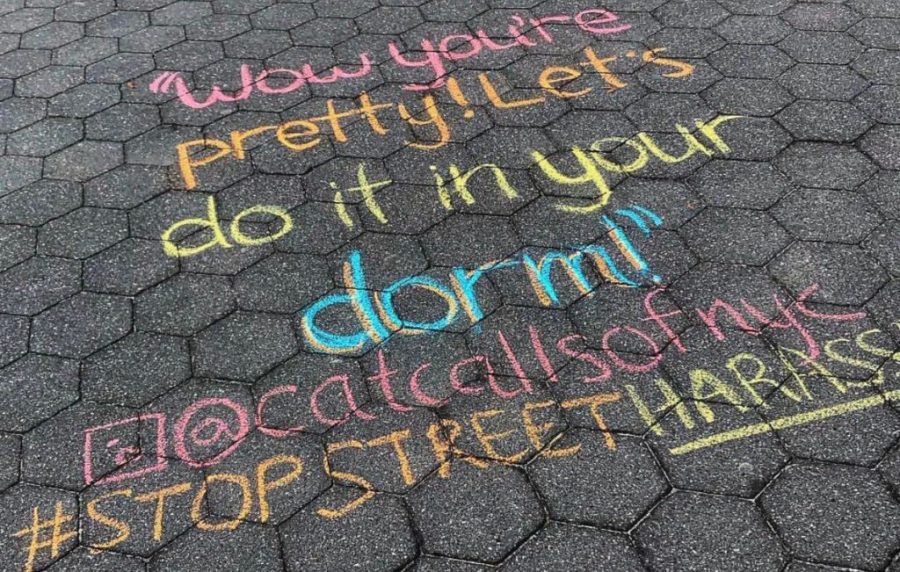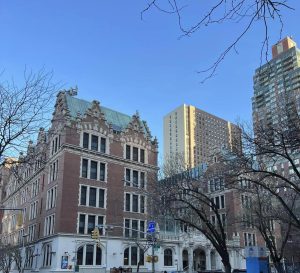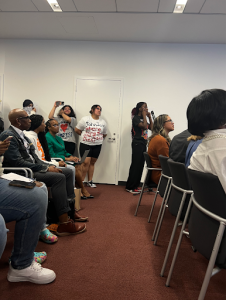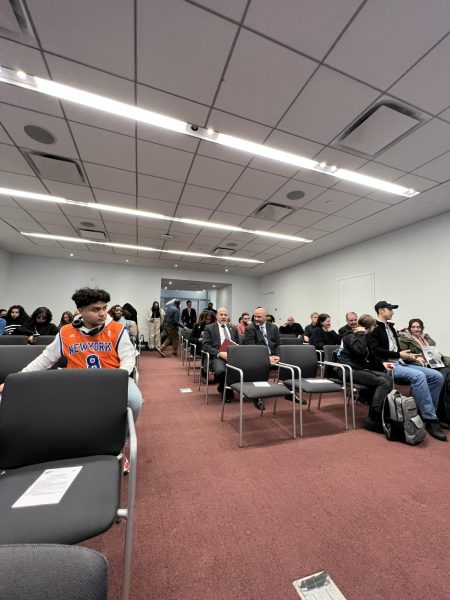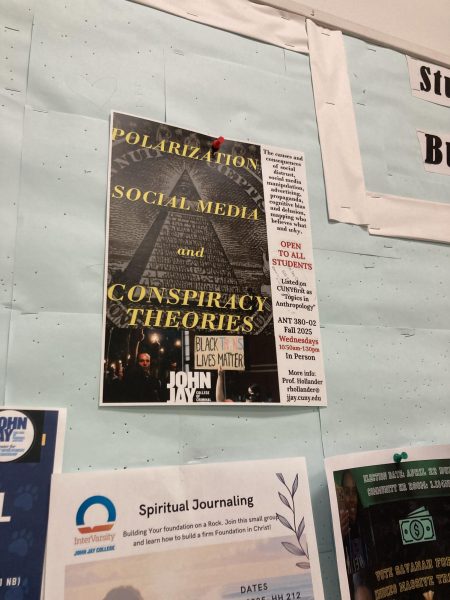Cat-Calling in Washington Square Park
April 30, 2019
Spring came early in Washington Square Park. The hustle of New York City seemed to melt away on a surprisingly warm Saturday when birds chirped, people laughed, and the melody of the street performer’s drums and saxophones swirled around.
The smell of sweet roasting peanuts and salty pretzels from vendors was in the air. It was heartwarming to see children, families, and groups of college students as they enjoyed the outdoors.
However, looming in the shadows of the Washington Square Arc, men were on the prowl. They are Cat-Callers, people who shout obscenities or whistle at women who walk by. It seems like an unreal blast from the past.
Images of New York City construction workers from the 1970s immediately come to mind. But, we’re in 2019. For the New York University Students who go through the park every day, they say that the environment can be toxic. And, for the students who live in the dorm halls around the park, they say it’s even worse.
The problem is so pervasive that activists like Sophie Sandberg, the founder of @catcallsofnyc, are doing everything in their power to fight back.
Gabriella Caprice is a sophomore majoring in Cinema Studies at NYU. She lived in Lipton Hall as a freshman and would walk through the park to get to the Tish School of the Arts building. After a few weeks of making the short commute for early classes, she called her parents in upstate New York asking if they could mail her noise-canceling headphones. Her parents thought her request was to make studying easier while being in a rowdy dorm, but it was actually because of the cat-callers.
Caprice says it was mostly construction workers in the area who whistled when she walked by. Sometimes, it escalated to derogatory comments about her body.
“Every morning it was like gearing up for a fight,” she said. “I just had to put on a brave face and keep walking when they’d talk about my legs or my chest.”
Now, Caprice lives in Greenwich Hall southwest of the NYU campus, which is a longer walk, but she’s happy that she doesn’t need to travel through the park.
Chelsea Connell, 18, is a freshman studying Education at NYU. She is accustomed to big cities since she’s from Chicago, but Connell says that the cat-calling in the Windy City isn’t as bad as it is here. Connell went on to say that the men in Washington Square Park who try to get her attention are typically older in their 30s or 40s.
Occasionally, the construction workers chime in as well, and she doesn’t appreciate it. Connell then described a time when a man followed her for a few blocks.
“I crossed to get to the other side of the street, but then he got mad at that, and shouted ‘Oh I’m not going to rape you or anything!'” she said.
While Connell believes that cat-calling isn’t flattering, Yufei Li, an 18-year-old NYU freshman studying French & Linguistics says that sometimes it can be.
“If the men aren’t doing anything [bad], then it’s nice when they say, ‘I just want to compliment you!'” she said. “But if they ask you for your number, then it’s not appropriate.”
Jennifer Herrera, 19, from Long Island is a sophomore studying Biology at NYU. She lived in Rubin Hall during her freshman year which is a four-minute walk to the park. While Herrera hasn’t experienced any cat-calling in the area, she’s skeptical that anything more can be done by the University to help make those that are suffering more comfortable; especially since Washington Square Park is open to the public.
“I think the Safety App, Safe Rides, and services are very helpful,” she said.
Herrera is talking about NYU’s free app, “SAFE NYU” where students can log-in with their educational accounts and access features like campus alerts or file incident reports. With Safe Rides, users can call for a car to pick them up, but it often takes hours to arrive. That response time is simply impractical if a student is in a situation where they need to get out quickly.
Moreover, NYU has yet to create a system where students who don’t feel safe walking at odd hours can request a Campus Officer to accompany them to their destination. This measure would drastically cut down on the cat-calling since most women get harassed when walking alone.
Sophie Sandberg is a senior at NYU majoring in Gender and Sexuality Studies. As a young girl growing up in New York City, she recalls being cat-called at 15-years-old. When she told friends and family about the unwanted attention she was getting, they told her to ignore it, or change how she dressed. As Sandberg got older, her silence only made her angrier with the cat-callers.
As an NYU freshman, Sandberg founded @catcallsofnyc, an Instagram account dedicated to sharing women’s experiences and ending street harassment. Women message her with stories and quotes of their unwanted encounters around New York City. Then, Sandberg writes the quotes with chalk onto the sidewalks to get people’s attention. One student wrote to Sandberg about her experience in Washington Square Park. The cat-caller said, “Wow you’re pretty! Let’s do it in your dorm!” while a more vulgar person said, “Let me be the next R. Kelly!”
Sandberg’s Instagram account has just over 100k followers and receives a flood of personal submissions daily.
“I want people to be aware of the problem so we can help people face it,” she said. “I truly believe that the more we spread the word about street harassment, the more we can focus on changing the culture we live in.”
Sandberg envisions a future where cat-calling is a thing of the past. She wants to travel to schools and teach students of all ages about what harassment means, and help to change the culture around gender power dynamics. Through education, dialogues, and workshops, people can learn to stop the behavior, or at least become active bystanders.
“By talking about it together, we can build a collective voice, and avoid feeling silenced by the comments,” Sanberg said.


